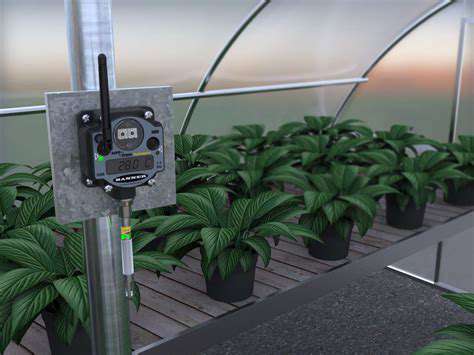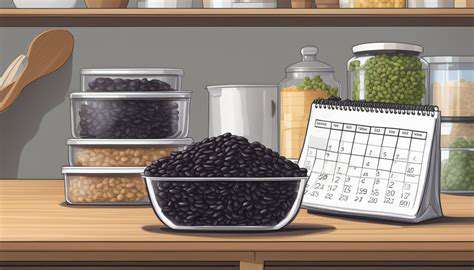Storing Coffee Beans for Brewing: Best Practices

Proper Storage Duration and Rotation: Maximizing Bean Life

How Long Should You Store Different Foods?
Not all foods last the same amount of time in storage. Keeping food properly stored stops it from going bad and lets you enjoy it when it tastes best. Fruits and veggies, for instance, last different lengths of time based on what kind they are, how ripe they were when you got them, and where you keep them. Putting them in the fridge or on the counter, with the right amount of moisture, can make them last much longer. This matters a lot for getting the most nutrition and best flavor from your fresh produce.
Milk, cheese, and other dairy need special care to stop bacteria from growing and keep them tasting good. They must be kept cold to last as long as possible. Each type of cheese has its own storage needs, so knowing these differences helps avoid spoiled food. Understanding how long foods stay good helps you shop smarter and use what you buy before it goes bad.
Smart Food Rotation for Fresher Meals
Rotating your food is one of the easiest ways to keep meals fresh and safe. The first in, first out (FIFO) method means using older items before newer ones. This simple trick cuts down on spoiled food and waste, making cooking both healthier and cheaper.
When you organize your fridge and pantry with older items in front, you'll naturally use them first. This stops you from accidentally eating food that's past its prime. It's an easy habit that reduces waste and keeps your kitchen full of fresh, safe ingredients.
What Changes How Long Food Lasts?
Many things affect how quickly food spoils. Changes in temperature, how damp the air is, and whether air can get to the food all make a difference. Keeping your fridge and freezer at steady temperatures helps food stay good longer.
How food is wrapped matters too. Good packaging keeps food fresh by stopping moisture loss and keeping air out. Always check the packaging when deciding how long something will stay fresh.
Food quality when you buy it also matters. Bruised fruits and vegetables go bad faster than perfect ones.
Knowing these factors helps you store food better and waste less. When you understand these things, you can make food last longer and enjoy it at its best.
Handling Food Safely
Safe food handling keeps stored food good to eat. Always clean cutting boards, tools, and counters well to stop germs from spreading. Good cleaning habits keep your food safe to eat.
Using the right containers for different foods is also important. Never let raw foods touch cooked foods to avoid making people sick. Storing food correctly stops harmful bacteria from growing.
More Smart Storage Tips
Keeping Coffee Beans Fresh
How you store coffee beans changes how they taste. Good storage keeps their smell, sharpness, and flavor strong, so every cup tastes great. Light, air, and dampness all make beans go stale faster, so tight containers are a must. Air exposure makes beans lose flavor over time.
Special coffee containers that control moisture and temperature work best. These have tight seals made just for keeping coffee fresh.
Why Light and Heat Matter
Light ruins coffee bean quality. Sunlight and even bright store lights break down flavor compounds. Keep beans somewhere cool and dark, like a closed cupboard away from heat.
Changing temperatures cause problems too. Don't keep beans where temperatures jump around a lot. This can make moisture form, which makes beans damp. Steady temperatures keep flavor best.
The Power of Tight Containers
Air-tight containers stop air from making beans stale. They create a barrier that keeps out oxygen, which kills flavor. Choose containers with lids that snap shut tight. This matters for both short and long storage.
Vacuum-sealed bags or containers remove all air, stopping oxidation completely. These methods make beans last much longer.
Humidity's Role in Storage
The right dampness level matters as much as temperature and light. Too much moisture causes mold, while too little dries beans out. Aim for 50-70% humidity. If your home's air changes a lot, get a special container to control moisture.
Making Beans Last Longer
Good storage can make coffee beans stay fresh for months. Tight containers in cool, dark places work best. Vacuum sealing stops air damage completely. These steps help beans stay good much longer.
Spending money on good storage pays off with better-tasting coffee. The care you put into storage shows in every cup.
Freezing Beans: Does It Work?
Some people freeze beans for long storage, but flavor changes are debated. Freezing stops air damage but might change taste. Some say frozen beans stay fresh for years, others notice flavor changes. You'll need to try it to see if freezing works for you.
Choosing Storage Bags
The right bags help preserve beans. Look for special coffee bags that seal tight and block moisture. These often have special linings that keep air and dampness out. Closing them properly keeps beans fresh.
- Baking for Beginners: Easy Recipes to Master
- Authentic Greek Salads: Fresh and Flavorful
- Seasonal Cooking: Fall Harvest Recipes & Produce Guide
- Baking with Kids: Fun & Simple Cookie Decorating
- How to Store Avocados: Ripening and Storing
- Fluffy Pancakes from Scratch: Your New Weekend Ritual
- Crispy Air Fryer Chicken Wings: Game Day Perfection
- High Fiber Diet Benefits: Recipes for Digestive Health
- Kitchen Organization for Small Spaces: Maximizing Every Inch
- Simple Beef Recipes: Versatile and Delicious
- Batch Cooking Tips: Save Time and Effort in the Kitchen
- How to Store Eggs for Maximum Freshness